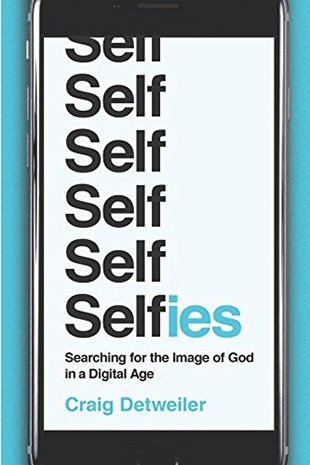"What is sacred amid so many selfies? The digital era has disrupted so many established industries and traditions. Institutions are scared. Civic and religious leaders feel threatened. Social media is creating epistemological problems and raising foundational questions. What is truth? What sources can be trusted? As our culture boils, most of us have retreated to our phones. We are so busy broadcasting ourselves that we have no time to worry about our neighbors. We tell our children to be patient and loving and kind, but we haven't figured out what that means in our online activities. With devices in hand, we all too easily treat others as a position or a problem rather than as a person. We may acknowledge this is a problem, but few of us have the time, energy, or resources to propose a solution, to mine our spiritual and ethical resources in search of rehumanizing precedents. We will not rise above our political divide until we recognize the glory and dignity of each other on (and off) line. Digital discipleship is a new concept, still being sorted out.
"One point of agreement seems to be that selfie takers are selfish. We blame our devices, but mostly we blame each other. 'Kids today . . .' 'In my time . . .' 'We never . . .' A survey of college students joined the chorus, calling selfies 'arrogant, self-absorbed, disgusting, degrading, ridiculous, vapid, useless, selfish, shameless, vain and hedonistic.' We chastise ourselves for self-interest, even while we're posting. A cycle of self-loathing follows. . . .
"Because they are a recent phenomenon, selfies have only begun to be studied by researchers. The iPhone 4 debuted in 2010. By including a front-facing camera, Apple enabled users to see (and photograph) themselves more easily than ever before. A quick 'click' and iPhone owners could share their image far and wide. . . . Parents and teachers have been flummoxed by how quickly the smartphone has captured adolescents' attention. Teens have been handed a potent tool without an operating manual. Never have so many been able to reach so many so quickly. Smartphones have remarkable democratizing power. They also have the ability to surveil the public like never before. More diverse voices are being heard and more colorful faces seen. And yet algorithms may be splintering us into smaller and smaller groups of like-minded people. A new tribalism may emerge that threatens democratic ideas. We are still trying to figure out how to respond to the powerful and prolific form of communication. Could a deeper appreciation of selfies renew our affirmation of everyone's God-given dignity and worth?"
